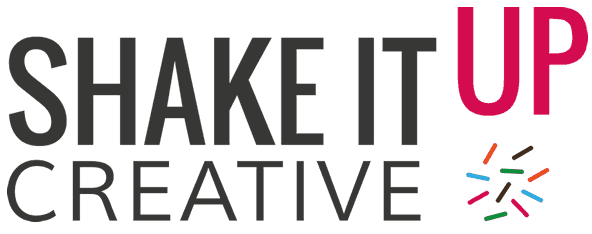
You’ve probably heard of affiliate marketing, but you may not have considered adding affiliate links to your website to create a new revenue stream.
But affiliate marketing can be an effective way of maximising your existing audience and earning commission from sales of relevant products and services. And it can all be done through your current blog and social media channels. Here is an introduction to affiliate marketing and how to do it.
What is affiliate marketing?
Affiliate marketing is the process of promoting other companies’ products in return for commission when someone buys via your affiliate link. You become a salesperson for the company, and you can scale this up to promote products and services from as many companies as you wish.
Product and service providers use affiliate marketers to spread the word about their offering. Online retailers like Amazon provide product links containing unique codes for each of its affiliate marketers.
When a link published via a website or social media account is followed, a cookie is stored on the user’s device. If they make a purchase after clicking the link, the affiliate marketer receives a percentage of the sale value as a financial reward.
With Amazon, there is a 24-hour cookie window. This means that any sales made up to this point will earn you commission, even if they buy something you didn’t promote.
Affiliate marketing is a win-win situation. Merchants benefit from only paying out when sales are generated, while publishers benefit from receiving compensation for every sale they help generate. Consumers buying the product or service pay no more than usual, so they don’t lose a thing.
Who does affiliate marketing?
Affiliate marketing is often associated with bloggers, vloggers and social media influencers, who add affiliate links to their video descriptions and posts to earn commission every time someone clicks on their link and goes on to purchase a product or service.
Businesses like yours can also benefit from using affiliate links on your website and other channels. The most common publisher types are cashback sites, voucher sites, mobile app and game publishers, and comparison sites.
But anyone with an audience and a niche, like magazine editorial sites, forums or B2B/B2C companies, can join affiliate programmes and start affiliate marketing.
What are the benefits of affiliate marketing?
Affiliate marketing is big business. It’s a billion-dollar industry with large earning potential if you get it right. It is convenient, requires no specific expertise to get started and is a great source of passive income, with none of the after-sales care and customer service excellence to master.
Publishers who are experiencing losses in revenue from traditional advertising can turn to affiliate marketing to counter this. Contextual product recommendations can be a lot more appealing to consumers than intrusive banners and search engine ads.
Are there any drawbacks to affiliate marketing?
Like paid online advertising, affiliate marketing as a channel is vulnerable to fraud. In fact, affiliate marketing fraud is predicted to cost $1.4 billion globally this year, with at least 9% of all transactions affected.
Types of affiliate fraud include using stolen credit card details to generate sales, hijacking affiliate links and getting people to download adware or spyware that inserts an affiliate code automatically.
Affiliate marketing also offers limited control to the publisher – both in terms of the programmes you join, with retailers dictating commission percentages, and your competition, with very experienced affiliate marketers around. There is no guarantee of revenue and it is very performance-based, so it’s good to have other income streams to rely on.
Sites that contain a lot of affiliate ads can look cluttered, confusing visitors and distracting them from your content. Ways to get around this include telling stories that resonate with your audience and using high-quality images with simple, actionable copy.
How do you get started with affiliate marketing?
The first step is identifying your niche. What do you create most of your content around, and what type of business are you? The answers to these questions will help steer which products and services you decide to promote.
The next step is finding an affiliate platform, or several, to join. There are three different affiliate marketing programmes you can join: high-paying low-volume, low-paying high-volume and high-paying high-volume.
High-paying low-volume affiliate programmes are best suited to consumer audiences, while low-paying high-volume affiliate programmes tend to be for business audiences, and are most commonly for software and web hosting products.
High-paying high-volume affiliate programmes, for products such as credit cards, tend to attract experienced affiliate marketers or spammers, and may be hard to compete with.
Some reputable affiliate programmes include Amazon Associates, eBay Partners, Shopify Affiliate Program and ShareASale Affiliates.
After you’ve decided on your niche and found affiliate programmes to join, your focus will be on creating great, useful content for your audience, driving traffic to your content with paid ads and SEO, and ensuring people are motivated to click on your affiliate links.
By experimenting with different types of content, link placement and affiliate programmes, you can find out what maximises your conversion rates, both in terms of views to link clicks and link clicks to sales.
Will affiliate marketing make you money?
Here’s the bit you’ve all been waiting for. You understand the unlimited potential of affiliate marketing to make money, but how does this translate into real income?
Affiliate marketing works best when it makes up one part of a larger marketing strategy, and when you constantly review your performance and tweak your approach to it. It takes time and commitment – to creating good content, to optimising conversions – to succeed in affiliate marketing.
But yes, it is possible to make affiliate marketing a lucrative arm of your business. After our introduction to affiliate marketing and how to do it, is it something you might try?
Rachael Dines, Director of Shake It Up Creative
